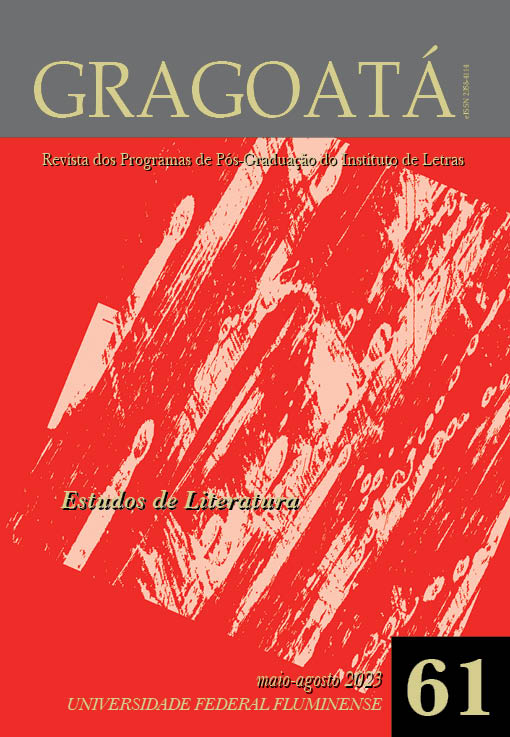A literatura indígena brasileira diante de Gaia: ensaiando o fim
Mots-clés :
ecologia, literatura indígena brasileira, Bruno Latour, antropocenoRésumé
O termo ecologia foi provavelmente cunhado pelo biólogo alemão Ernst Haeckel (1834 - 1919), em 1869, para designar o estudo científico dos organismos no contexto de seus ambientes orgânicos e/ou inorgânicos. A palavra é derivada dos termos gregos oikos, isto é, “casa”, e logos, “estudo”, e sua criação artificial, que remonta à formação de um novo campo de estudos durante o Oitocentos, revela que o desprezo das ciências pelo meio ambiente perdurou por muitos séculos. Os povos indígenas, que jamais estabeleceram uma divisão entre o conceito de desenvolvimento da vida humana (civilização) e natureza, sempre se opuseram à exploração desmedida dos recursos naturais empreendida pelos colonizadores. Sob a ótica europeia, essencialmente desenvolvimentista, esse tipo de discurso foi considerado sinônimo de atraso econômico, sendo, pois, refutado. Contudo, com a degradação agora notável do planeta, refletida no aquecimento global e nas sucessivas tragédias ambientais, surge um interesse renovado em ouvir as comunidades originárias e suas lideranças, movimento que se expandiu durante a pandemia de 2020, quando obras nativas sobre o antropoceno se tornaram best-sellers em nosso país. Neste ensaio, busco mostrar como o pensamento ocidental começa a absorver o chamado “pensamento ameríndio”, a partir da relação homem-natureza presente nas cosmovisões desses povos, influência perceptível em obra de Bruno Latour (2020). A análise das propostas antropológicas do supracitado autor buscará paralelos na literatura indígena brasileira produzida por diversos escritores, como Ailton Krenak, Davi Kopenawa, Eliane Potiguara, Marcia Kambeba.
Téléchargements
Téléchargements
Publiée
Numéro
Rubrique
Licence
(c) Copyright Gragoatá 2023

Ce travail est disponible sous la licence Creative Commons Attribution 4.0 International .
AUTORIZAÇÃO
Autores que publicam em Gragoatá concordam com os seguintes termos:
Os autores mantêm os direitos e cedem à revista o direito à primeira publicação, simultaneamente submetido a uma licença Creative Commons Atribuição 4.0 Internacional (CC BY 4.0), que permite o compartilhamento por terceiros com a devida menção ao autor e à primeira publicação pela Gragoatá.
Os autores podem entrar em acordos contratuais adicionais e separados para a distribuição não exclusiva da versão publicada da obra (por exemplo, postá-la em um repositório institucional ou publicá-la em um livro), com o reconhecimento de sua publicação inicial na Gragoatá.
A Gragoatá utiliza uma Licença Creative Commons - Atribuição CC BY 4.0 Internacional.











